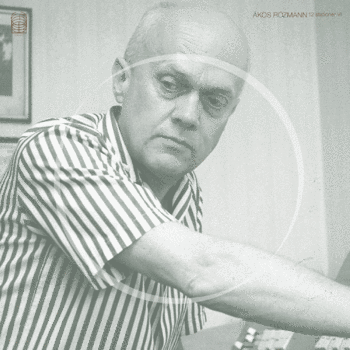 Give Everybody Everything: The Financial Life of Bernadette Mayer
Give Everybody Everything: The Financial Life of Bernadette Mayer
The Organist
The life of a poet is rich with meaning and beauty. But the financial life of a poet is decidedly less rich. The poet Bernadette Mayer is a case study in how literary influence does not translate into income. She dedicated herself to art knowing it...
info_outline The Narrative Line
The Narrative Line
The Organist
We’re constantly telling ourselves stories — who we are, where we’re going, what comes next. But what happens when the story you’re telling yourself turns out not to be true? Or, more fundamentally, what if the narrative form you’re...
info_outline Consider the Grackles
Consider the Grackles
The Organist
Touring a punk act pushes the limits of physical endurance — driving all day, sweating on stage, eating badly, sleeping worse. What keeps a band going for 14 years without a major commercial success? And what would possess someone old enough...
info_outline Death in Twin Peaks
Death in Twin Peaks
The Organist
Twin Peaks was never just a TV show: it was an obsession and an apparition. In its 2017 incarnation, the real-life deaths of several cast members hang spectrally over the proceedings. Legendary critic Howard Hampton meditates on how the show’s...
info_outline A Call in the Night
A Call in the Night
The Organist
Your phone rings at 3:30 in the morning. You answer the call, and a person who's just been woken up with a call from you is on the end of the line. The call is being recorded. Both of your lives are changed forever. In this episode we explore the...
info_outline Angelyne
Angelyne
The Organist
For decades, Angelyne pouted down from Hollywood billboards, looking like a New-Wave Jayne Mansfield: a dense cloud of bleached blonde hair and abundant cleavage barely contained by furry pink bikini tops. No one was sure what to make of the...
info_outline The Dogfather
The Dogfather
The Organist
Today’s episode is about dogs.
info_outline The New World
The New World
The Organist
Where do speech balloons come from? How does time move from panel to panel? This week we explore the techniques of comic-book storytelling through Chris Reynolds’s graphic series, newly anthologized as The New World. Join us as we travel deep into...
info_outline Low Fidelity
Low Fidelity
The Organist
What sounds don’t we hear when we listen? What sounds are discarded in digital processing, whether it’s through hearing aids or mp3s? This week we travel to Scottish lighthouses, professional sound-testing facilities, and animal slaughterhouses...
info_outline Between Speaking and Singing
Between Speaking and Singing
The Organist
Will spoken language become obsolete? What if, in the future, a simple conversation between two adults becomes a rarity, like an obscure musical piece that involves months of rehearsing and vocal training to be able to perform?
info_outlineThis week, we pull out the stops and go full-Organist with an episode about Ákos Rózmann, an organist serving a Catholic church in Stockholm who played hymns during the day and by night invented unearthly electronic music in the recording studio he’d built in the church basement (where he often slept). It was there that he composed his roiling experimental six-hour-long composition 12 Stations—a sonic journey from hell to heaven, which emerged from the personal trauma of his childhood in Nazi-occupied Hungary and then his father’s death in a Communist-era concentration camp. Stephen O’Malley, the composer and guitarist behind Sunn O))) and other doom-metal projects has recently reissued Rózmann’s compositions on his record label Ideologic Organ.

Ákos Rózmann
This episode also features Jordan Jacks’s organophilic flash fiction: “The organist at my parents’ church had severe arthritis, and as a child my job was to flip pages for her. Her hands were so stiff that I also had to pull the stops: clarion, chimney flute, vox humana. Occasionally, when her ankles were bad, I also sat under the bench and pressed the keys of the pedalboard with my hands, waiting to hear the organist whisper the note down to me.”
Produced by Thomas Henley
Image credit: Courtesy of Ideologic Organ
